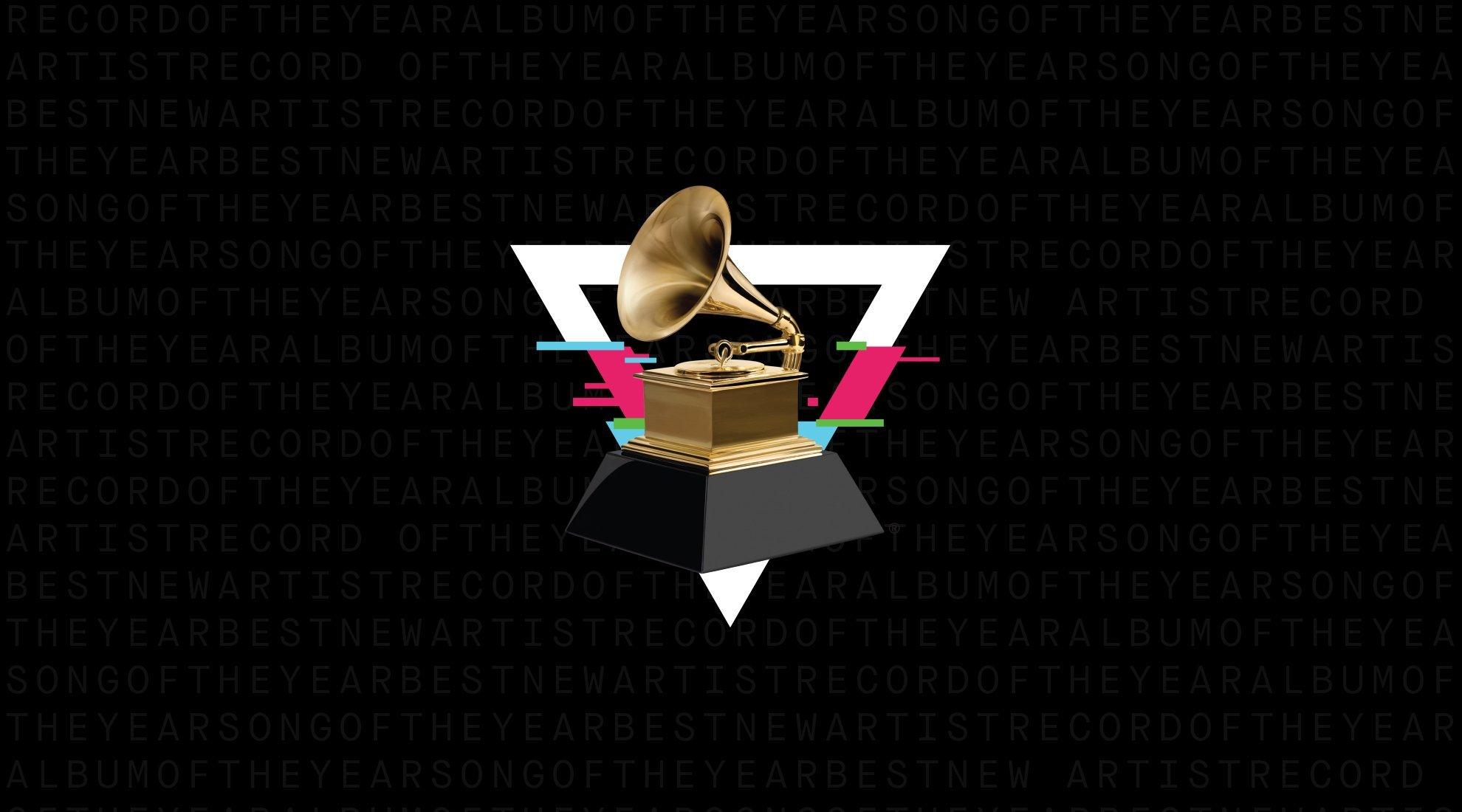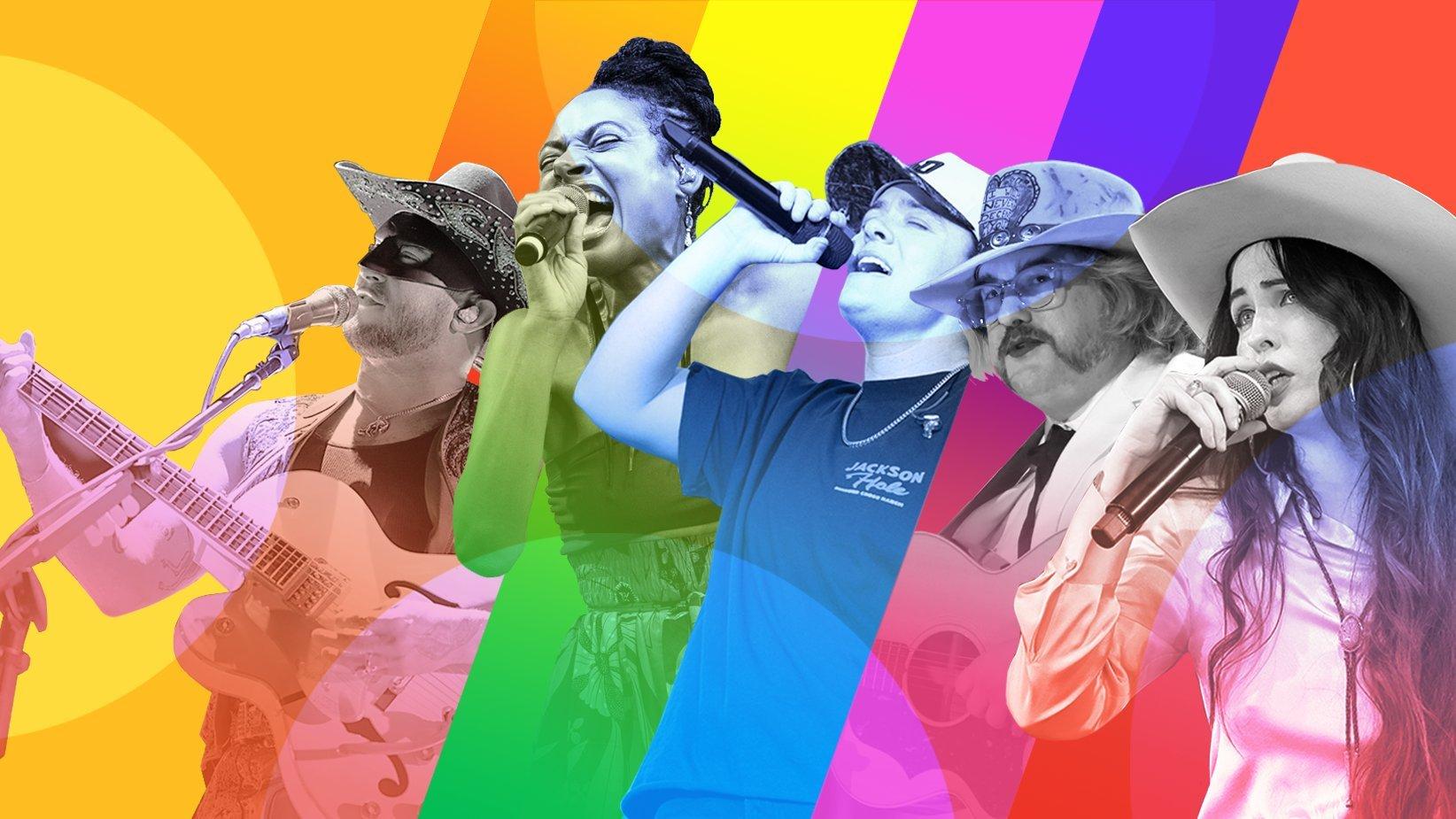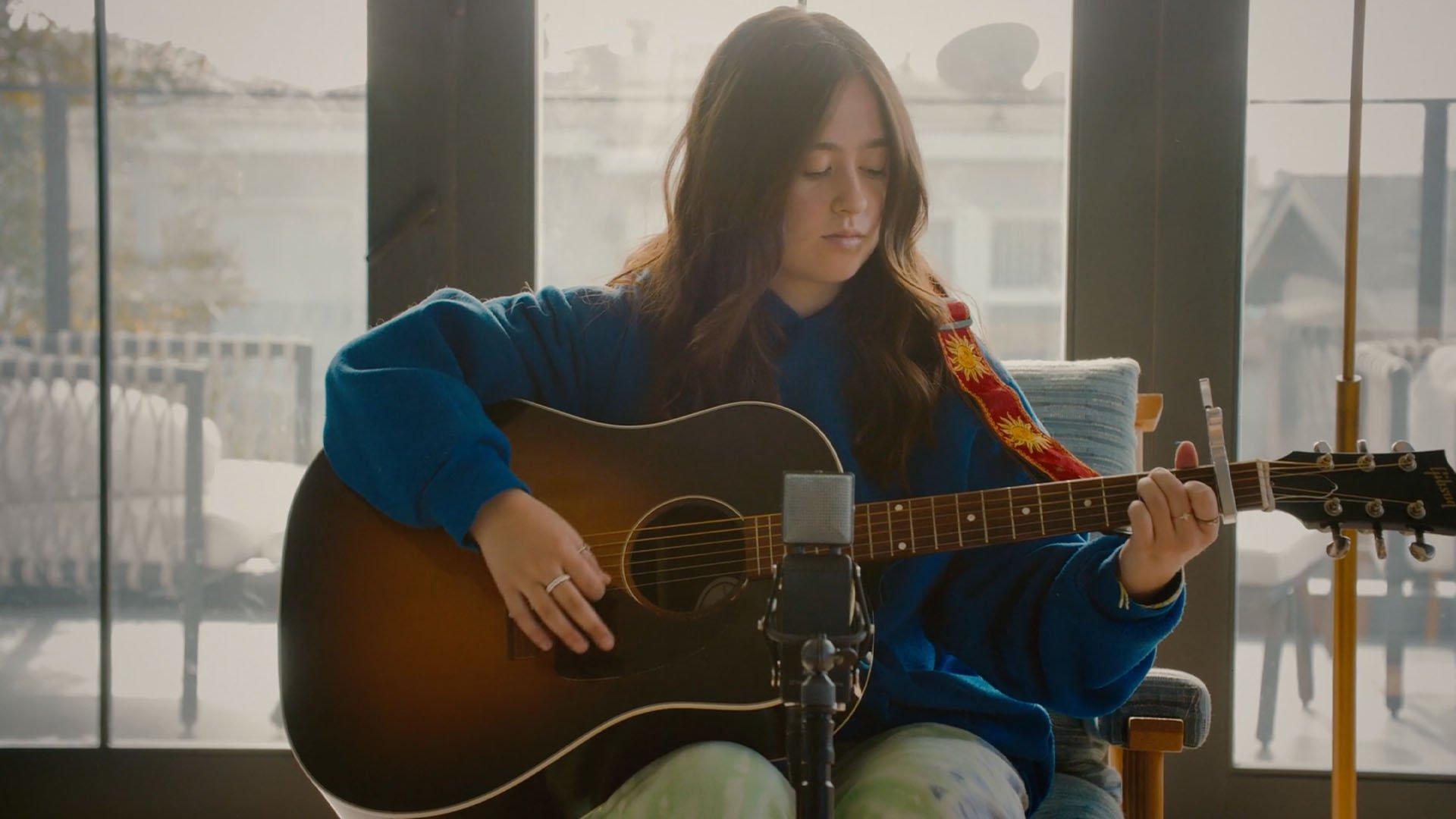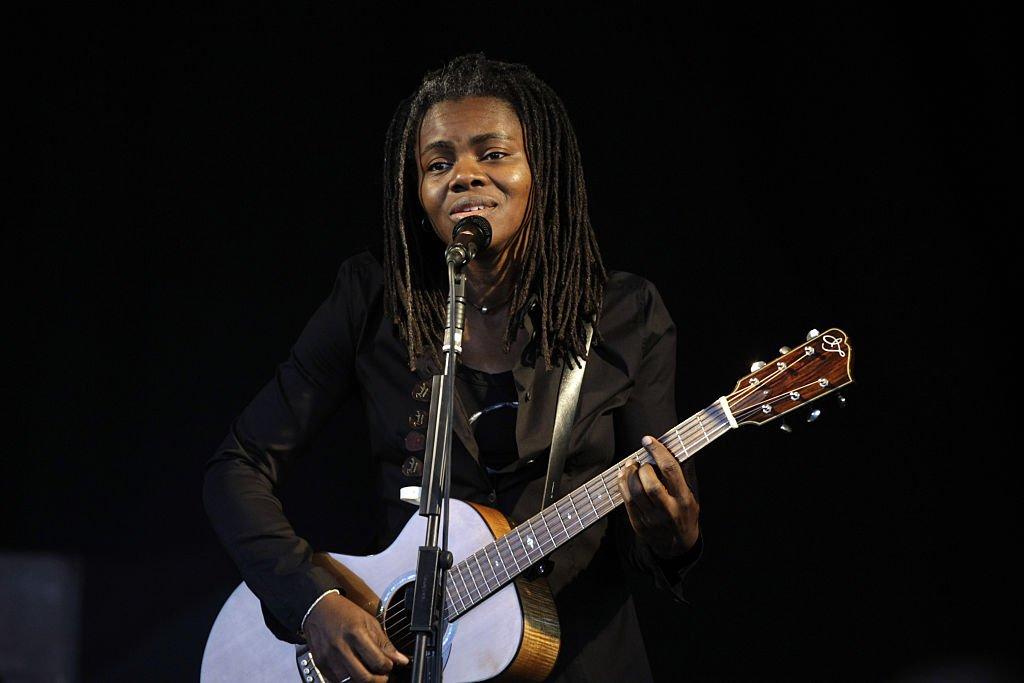Editor’s note: This story was updated on Monday, Jan. 8, to include mention of Luke Combs and his 2024 GRAMMY nomination.
Renowned for her stripped-back folky sound, social conscience and storytelling abilities, Tracy Chapman has never really fitted into the pop landscape. The singer/songwriter emerged in the late 1980s, a period when big-voiced power balladeers and exuberant teen princesses were all the rage. And throughout the following two decades, the Cleveland native continued to assemble an impressive body of work that remained utterly impervious to fleeting chart trends.
Chapman's determination to carve out her own distinct path has undeniably reaped its rewards. Her self-titled debut album topped the Billboard 200 in 1988, sold 20 million copies and received six GRAMMY nominations; she won three (Best Contemporary Folk Album, Best Female Pop Vocal Performance and the coveted Best New Artist). A mid-'90s career resurgence, meanwhile, helped to boost her awards tally, with biggest hit "Give Me A Reason" picking up Best Rock Song.
And whether standing in for Stevie Wonder at Nelson Mandela's 70th Birthday Tribute Concert or performing "Talkin’ Bout a Revolution" on the eve of the 2020 presidential election, Chapman has used her earthy voice to soundtrack several key historical moments. And the very traditional kind of artist even unwittingly became a viral sensation thanks to a powerful rendition of Ben E. King classic "Stand By Me" in aid of David Letterman's late-night retirement.
Although Chapman hasn't released a studio album since 2008's Our Bright Future, her music has remained an ever-present. From Sam Smith and Justin Bieber, to Passenger and Luke Combs, it's probably quicker to list which contemporary acts haven't covered her defining single "Fast Car" in recent years; dance producer Jonas Blue even took it back into the Hot 100 In 2015. Kelly Clarkson, Black Pumas and Jamila Woods have all paid tribute by tackling different songs from Chapman's remarkably consistent oeuvre, too.
Of course, Chapman's modern-day cachet extends beyond the odd song. Here's a look at five artists who have credited the star as a formative influence on their entire careers.
Luke Combs
By now, an ocean of ink has been spilled about Luke Combs making Tracy Chapman’s "Fast Car" a hit once more — from its racial, sexual, class, gender, and genre dynamics, to whether whitewashing was at play. But with all due respect to the talking heads, the truth is arguably much simpler: when it comes to great singer/songwriters, game recognizes game.
"There was this one song that really stuck out to me. It was called 'Fast Car,'" Combs said onstage last year. “That song meant a lot to me since then — for my whole life. I always think about my dad when it comes on and us spending time together.” It’s awfully telling, too, that Combs didn’t flip the gender of the song — a token of respect. He, too, is a "checkout girl."
Decades after its creation, Combs' take on "Fast Car" made a U-turn to the top of the Billboard country charts; at the 2024 GRAMMYs, his version is nominated for Best Country Solo Performance.
"It has stayed with me since I have played it in my live show now for six-plus years and everyone — I mean everyone — across all these stadiums relates to this song and sings along," Combs later told Billboard. That’s the gift of a supernatural songwriter." Yes, “Fast Car" is deeply, incontrovertibly human, and earthbound. But Combs reminded us that it’s charged with magic, too. — Morgan Enos
Khalid
Just like Chapman, Khalid racked up a glut of GRAMMY nominations with his debut album, American Teen. And while promoting the record on BBC Radio One's Live Lounge in 2018, the chart-topper doffed his cap to one of its major influences with an acoustic reworking of "Fast Car." An obvious choice, perhaps, but speaking to Forbes later that same year, Khalid insisted that he was far from just a fair-weather fan.
"For me, Tracy Chapman was just someone who inspires me in terms of songwriting," the "Talk" hitmaker revealed. "When I think about songwriting just how she can make you feel like you're in that moment." Chapman was also the first name that came to mind when Khalid was asked about his biggest musical inspiration in our One Take series.
Lisa Marie Presley
The late Lisa Marie Presley took her time following in her father's footsteps, releasing her debut album, To Whom It May Concern, at the relatively late age of 35. But it was the music of singer/songwriters such as Linda Ronstadt, Shelby Lynne and, in particular, Tracy Chapman (rather than the rock and roll of Elvis) that informed her sound.
In a 2012 chat to promote third LP Storm and Grace, Presley told Rolling Stone India, "I've never met Tracy, but she's always been a huge influence on me; I don't even know if she knows that. From her first album until everything, she's been such an influence on me as a singer-songwriter."
Presley also referenced Chapman in an interview with the Huffington Post about her musical inspirations, adding, "I love women who sing, and they mean what they're saying, and they reach in and grab you. It moves you. You can feel the singer, and it's for real." And while appearing on BBC Radio 2’s Tracks of My Years in 2013, the star selected "Smoke and Ashes" from Chapman's 1995 LP New Beginning as one of her all-time favorites.
Valerie June
"The missing link between Memphis Minnie and Tracy Chapman" is how singer/songwriter Valerie June was once described. No doubt that Chapman, whose sound combines folk-pop with everything from soul and bluegrass to traditional Appalachian music, would have been on board with such comparisons.
June became a die-hard Chapman fan while growing up in Jackson, Tennessee, as she explained to the Washington Post in 2014: "I wanted to perform from probably the age of four or five, but I never believed I could. I saw Tracy Chapman and Whitney Houston and wanted to be like them. But I thought, 'Yeah, no way. They didn't come from a little old place like this.'"
Of course, June did manage to carve a niche for herself in the wider world. She even picked up a Best American Roots Song nod at the 2022 GRAMMYs for "Call Me A Fool," a collaboration with Stax legend Carla Thomas. And one of her proudest career moments was following in Chapman's footsteps by appearing on "Austin City Limits."
Brandi Carlile
Brandi Carlile has achieved several GRAMMY milestones throughout her glittering career. The Americana favorite was the most-nominated artist at the 2019 ceremony in which she took home three gongs. Then in 2022, she became the first-ever female songwriter to pick up two Song Of The Year nods simultaneously. And the music of Tracy Chapman helped set Carlile on her 24-time nominated path.
Carlile has frequently acknowledged the influence that the "Fast Car" hitmaker has had on her career. While hosting "Somewhere Over the Radio," a SiriusXM show designed to celebrate "queer excellence," the star played one of her most cherished Chapman songs. And during her 2023 A Special Solo Performance tour, she brought out wife Catherine to perform a duet of New Beginning cut "The Promise."
Carlile is such a fan that while responding to a fan on Twitter in the pandemic-hit 2020, she argued that one of the few ways the year could redeem itself was if Chapman dropped a new album.
Tori Amos
Eight-time GRAMMY nominee Tori Amos and Tracy Chapman began their careers in tandem: David Kershenbaum executive produced the eponymous first albums from both the former's short-lived synth-pop outfit Y Kant Tori Read and the latter singer-songwriter around the same time. And the flame-haired pianist was one of the first to recognize that her counterpart was something special.
In a Pitchfork interview about her musical tastes, Amos revealed that Tracy Chapman essentially changed her entire outlook. "It woke me up and took me back to my 5-year-old self, who was creating from a pure place of intention of music being magic, as a place where we could walk into and feel many different things."
Amos subsequently ditched the crop top, leather pants and copious amounts of hairspray and, like Chapman, followed her artistic instincts. When asked by Glamour magazine in 2012 which female artists its younger readers should explore, the "Cornflake Girl" hitmaker didn't hesitate in mentioning her fellow 1988 debutant.
5 Artists Influenced By Paul Simon: Harry Styles, Lorde, Conor Oberst & More

















